Bride-to-be spent planned wedding day on ventilator before dying of COVID-19

Bride-to-be spent planned wedding day on ventilator before dying of COVID-19
Samantha Wendell, 29, had scheduled an appointment to get a COVID-19 vaccine despite hesitancy due to misinformation, but she got sick before she and her fiancé made it to get their shots. Wendell spent their planned wedding day on a ventilator and died shortly after.
A Kentucky man is mourning the loss of his 29-year-old fiancé after she spent their planned wedding day on a ventilator before succumbing to a COVID-19 infection that had irreversibly damaged her lungs.
Samantha Wendell had graduated from college before beginning her new job as a surgical tech. She was engaged to the love of her life, Austin Eskew, 29.
Eskew said his fiancé started to feel ill after returning from a bachelorette trip in late July.
"She came back Sunday, symptoms started late Monday, Monday night, and then progressed through there," Eskew told FOX TV Stations.
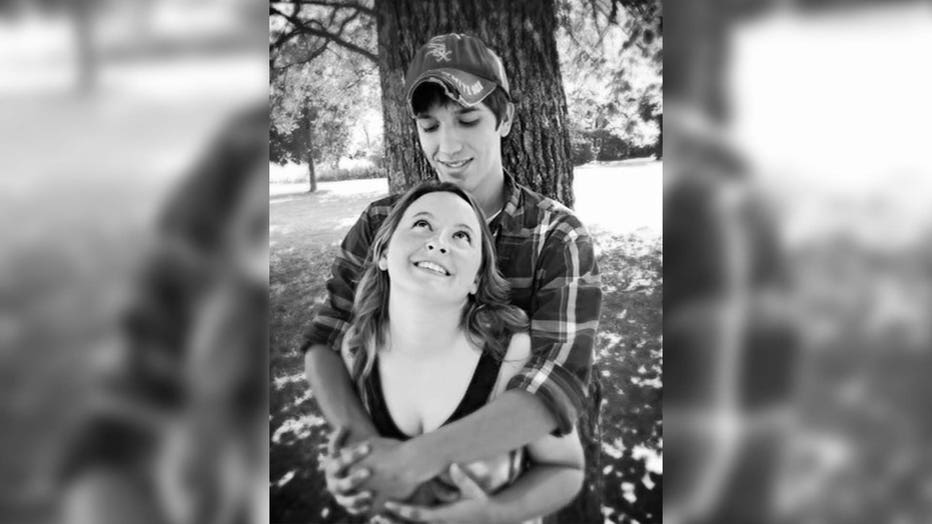
Austin Eskew and fiancé Samantha Wendell. (Austin Eskew)
RELATED: CDC: Less than 1% of breakthrough COVID-19 cases led to hospitalization or death
Wendell started off with a light cough, according to Eskew, which would get worse as the day went on. The very next day, not only had her cough gotten worse — she broke out in hives.
"She had broken out in stress hives before because of all of the stress of the wedding planning and everything that’s going on. She had it before and thought that’s what that was, but I told her, ‘You know, just to rule it out, if your work tests, see if they’ll allow you to get tested,’" Eskew said.
Wendell ended up testing positive for COVID-19, and according to Eskew, out of the 11 women who attended the bachelorette party, she was the only one to get infected. Eskew also became infected with COVID-19, but said he only suffered a high fever and was back to normal in a few days.
RELATED: COVID-19 vaccines prevented nearly 140,000 US deaths, NIH study says
Wendell and Eskew had scheduled appointments to get COVID-19 vaccines ahead of their upcoming wedding on Aug. 21, but after Wendell became infected, their plans were derailed.
Eskew said that the reason they had not gotten vaccinated earlier was the deluge of misinformation circulating about the shots. While he said he was not completely certain where Wendell may have seen it, Eskew said his fiancé became hesitant after seeing false claims about the COVID-19 vaccine making women lose their fertility.
One of the most common misleading rumors regarding the COVID-19 vaccine is that it will impact fertility, which experts say is not based on fact and has been repeatedly debunked. It is believed that the false report first surfaced on social media and included misinformation about the spike protein associated with coronavirus.
RELATED: U.S. to ease travel restrictions for international travelers
The false information claimed that the spike protein was the same as another spike protein called syncitin-1, which is involved in the growth and attachment of the placenta during pregnancy. The rumor claimed that the vaccine would cause a woman’s body to fight the spike protein, impacting fertility.
"The two spike proteins are completely different, and getting the COVID-19 vaccine will not affect the fertility of women who are seeking to become pregnant, including through in vitro fertilization methods," Johns Hopkins Medicine experts Drs. Andrew Satin and Jeanne Sheffield told FOX News back in May.
Satin, director of gynecology and obstetrics, and Sheffield, director of maternal-fetal medicine, pointed to Pfizer-BioNTech’s trial data as further evidence. During the clinical trial, 23 female volunteers became pregnant, and the only one to suffer pregnancy loss was in the placebo group.
Their findings echo those of the Centers for Disease Control and Prevention (CDC), which currently states that there is "no evidence that any vaccines, including COVID-19 vaccines, cause fertility problems – problems trying to get pregnant."
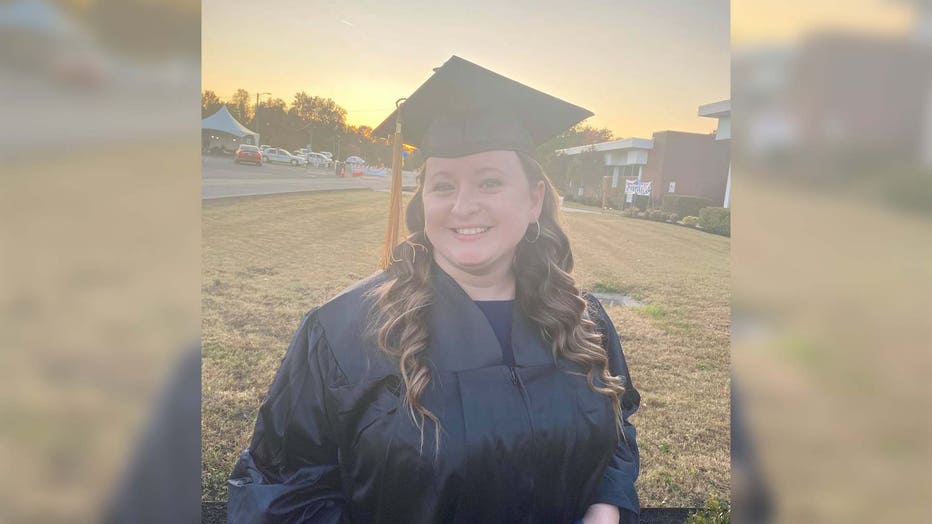
Samantha Wendell. (Austin Eskew)
RELATED: Hospitals in multiple states rationing health care amid crushing COVID-19 surge
"At one point in time, I believe it came from one of her friends to be honest, it could have been something she saw on Facebook because it pops up everywhere on there, but it was about fertility loss. We wanted to have a family. That’s why we were hesitant at first," Eskew said.
But with the delta variant causing a surge in cases, the engaged couple did not want to jeopardize their pending nuptials, so they decided to move forward on their plans to get vaccinated by scheduling COVID-19 vaccine appointments.
But then Wendell got sick. She was admitted to the hospital on Aug. 9, according to Eskew.
RELATED: Illinois family blames unvaccinated in obituary after vaccinated woman dies from COVID-19
"It didn’t really hit me nearly as hard, but she just had the constant cough so she was finding it hard to catch her breath, so we decided it was time to go and just get it checked out," Eskew said.
When Wendell got to the hospital, health care workers found that her oxygen level was dangerously low, so they admitted her for overnight observation. It wasn’t until a day later that doctors diagnosed Wendell with bilateral pneumonia, according to Eskew.
Wendell would later be transferred to a larger hospital where doctors resorted to putting her on a ventilator after her condition deteriorated.
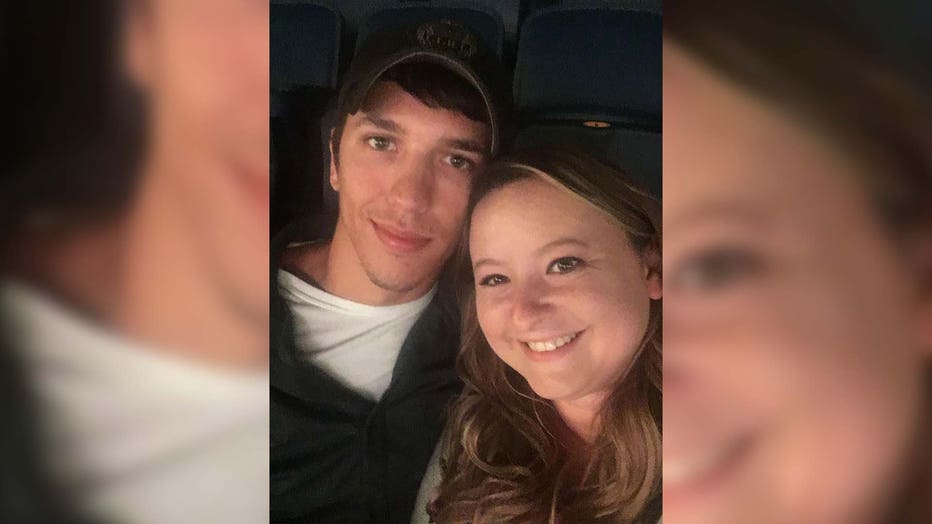
Austin Eskew and fiancé Samantha Wendell. (Austin Eskew)
RELATED: Wendy Williams tests positive for ‘breakthrough’ case of COVID-19
"She started having panic attacks throughout that week, and then come the 16th, she was having so much that she was losing too much oxygen from it, so they had to put her on a ventilator," Eskew said.
The pair were able to FaceTime one another with the help of the hospital staff since Eskew wasn't allowed to be in the room with his fiancé, which caused her even more stress and anxiety.
"Then they started doing FaceTime, which was great, I mean, obviously she couldn’t talk back but just to be able to see her and talk to her, tried to do what I could," Eskew said.
Eventually, Eskew was allowed to visit Wendell in the hospital for short periods of time. When Wendell finally tested negative for COVID-19, her family and fiancé were able to adhere to normal visiting hours.
RELATED: SoCal nurse, husband leave behind 5 kids, including newborn, after dying of COVID-19
Eskew and Wendell’s parents created a schedule to ensure someone was with Wendell for most of her hospital stay, hoping to provide some comfort during an uncertain and frightening time.
On Sept. 6, doctors told Eskew and Wendell’s families that she would likely survive her bout with the virus and seemed optimistic, according to Eskew. But just days later on Sept. 9, doctors performed a CT scan to see how Wendell was progressing and found she had scarring all over her lungs.
"Thursday, they did the CT scan and the scarring was all over her lungs and she was still suffering from pneumonia. And at that point there was no chance of survival for her," Eskew said.
RELATED: Married couple leave 7 children after dying from COVID-19 within hours of each other
After receiving the devastating news, Eskew said on Sept. 10 the ventilator was removed and Wendell passed.
"They allowed us to be in the room so I held her up until the last bit," Eskew said.
Eskew has nothing but fond memories of his late fiancé, saying she was "very caring" and "loved to be around people."
"She knew no strangers, everyone was her friend or they were going to be her friend," Eskew said with a smile. "She loved her animals and she loved taking care of anyone’s animals, she loved her job, absolutely loved her job. Any waking minute that she could learn something about it, she was on board with trying to do whatever she could for her job."
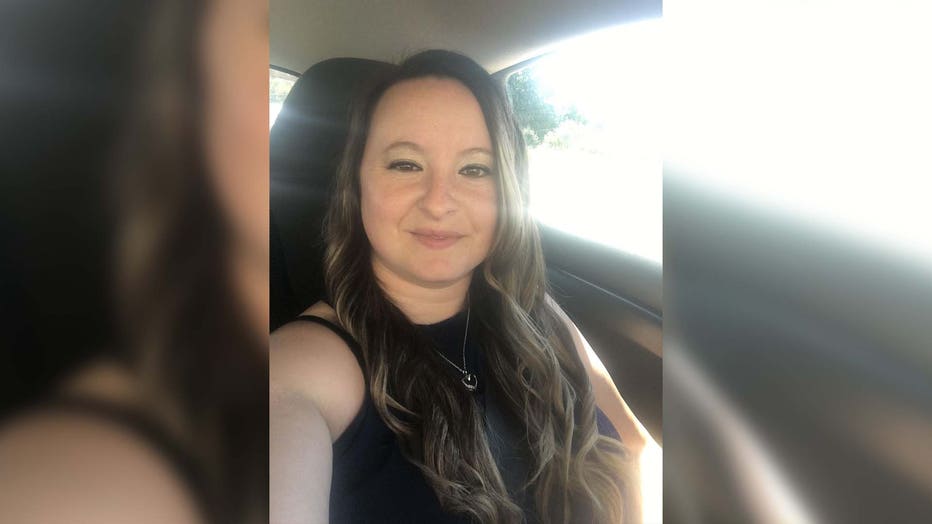
Samantha Wendell. (Austin Eskew)
RELATED: J&J COVID-19 booster 94% effective 2 months after 1st shot, company says
Eskew said that while he is not one to preach about whether or not to get the COVID-19 vaccine, he doesn’t see a reason for putting it off if someone is "on the fence" about getting it.
"The ones that are on the fence, especially if they’re in the same stance as I was, but if somebody is on the fence, and didn’t really care one way or the other, why put it off," Eskew said.
Wendell was laid to rest on Sept. 18.
The family has set up a GoFundMe to help with medical costs. Donations can be made here.
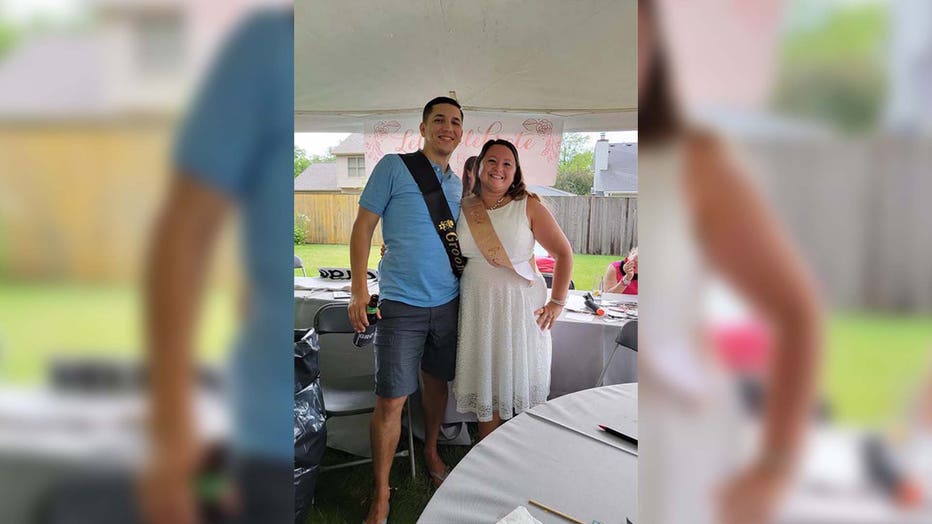
Austin Eskew and fiancé Samantha Wendell. (Austin Eskew)
RELATED: CDC study: Moderna vaccine most effective at preventing hospitalization
Multiple studies have been released over the past months which found evidence that the COVID-19 vaccines provide a high rate of protection against severe illness and death from the novel coronavirus.
Despite some data showing that the protection from COVID-19 vaccines waned under the delta variant, health experts say the protection from hospitalization and death that they do provide is still substantial. Similar data is reflected in breakthrough cases of COVID-19.
A breakthrough case, while rare, is when a person who is fully vaccinated against the novel coronavirus still gets infected.
According to data from the CDC on breakthrough COVID-19 cases, less than 1% of people who have contracted the novel coronavirus despite being vaccinated have either been hospitalized or died.
RELATED: Moderna study: Recently vaccinated have stronger protection from breakthrough COVID-19
Though hospitalizations and deaths from COVID-19 breakthrough infections can happen in rare cases, the data highlights just how uncommon such cases are.
As of Sept. 13, the CDC reported that 178 million Americans had been vaccinated for COVID-19. Out of those inoculations in the same timeframe, 3,040 patients died due to breakthrough infection and 12,750 were hospitalized.
The majority of breakthrough COVID-19 cases that resulted in hospitalization or death were in elderly people, 43% of whom were women.
"Vaccine breakthrough cases occur in only a small percentage of vaccinated people. To date, no unexpected patterns have been identified in the case demographics or vaccine characteristics among people with reported vaccine breakthrough infections," the CDC wrote on its website.
FOX News and Austin Williams contributed to this report. This story was reported out of Los Angeles.

